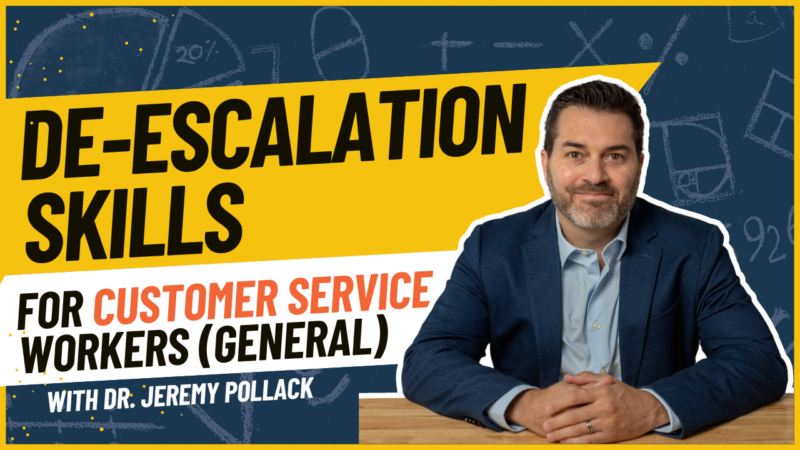Table of content
Employee conflict in the workplace is hardly pleasant, but it is inevitable. Even the most harmonious work environments can experience tension for a wide range of reasons. Learning how to deal with employee conflict is key to maintaining a positive professional setting, as it avoids further issues and tension. It also helps employees learn how to manage conflicts effectively. To help you hone your conflict management skills, review the following advice.
Get Clarification First
Before diving into mitigating the conflict, you need to know what the source of the issue is. This gives you a better idea of how the problem evolved. If the conflict just happened, it is likely that both sides feel heated and might make inflammatory statements. Give the involved parties time to breathe and cool down before discussing the problem with you privately. Once you have a clear idea of what happened, you need the employees to agree on the cause of the problem for HR reasons. Ask as many questions as necessary to ensure everyone involved understands what the conflict is about.
It is always best to discuss employee conflict in a private setting. Hashing out an issue in front of the other employees is unprofessional and will likely embarrass those in dispute. It also encourages gossip. By providing a private space to talk about the problem, the involved team members are more likely to be open and honest.
Remain Calm and Non-Judgmental
If you are the selected mediator for the conflict, it is your job to stay as calm as possible. Showing emotion can be construed as taking sides, which does nothing for the conflict at hand or overall employee morale. Favoritism can also get you in trouble with the HR department, if applicable. Should you be too close to the issue for any reason, have another supervisor mitigate the issue. Whoever hears about the conflict must remain objective at all times. Otherwise, the employees in question might be less forthcoming or feel like they are being judged. Neither of these things helps get to the heart of the issue, so take measures as necessary.
If you are the mediator, focus on active listening. This means you eliminate all distractions, such as muting assorted devices, to listen to what each party has to say. Doing so is another way to encourage openness and honesty because it demonstrates the respect you have for your team and shows that you value their time.
Do a Little Investigating
Depending on the reason for the conflict, an investigation might be needed. This avoids pre-judgments to help you deliver a “verdict” in light of the “evidence.” If the situation must involve the HR department, allow them to navigate the conflict moving forward. After all, learning how to deal with employee conflict means knowing when to involve other parties to ensure company policies remain intact.
Your investigation should also include determining if any underlying issues are the root of the conflict, such as the simmering resentment one employee has for another due to past slights, either real or imagined.
It might be a good idea to review the employee handbook with employees since a refresher never does anyone harm! Getting familiar *again* with company policies reminds team members that they are in a professional setting and there is no room for personal squabbles. It additionally reminds the involved parties that certain behaviors and actions will not be tolerated.
Schedule a Private Meeting
No employee conflict, no matter its cause, should be dealt with in public, i.e. in front of other employees. Trying to manage a problem with an audience results in several issues, such as the involved parties feeling self-conscious and less forthcoming, non-involved employees who watch the “soap opera” instead of concentrating on their work, and a public spectacle that does nothing for your company’s reputation.
Instead of facing these and other fallouts, schedule the conflict resolution meeting in private at a time that works for everyone. The employees in question will not feel like they are putting on a show and are likely to be more honest about how the problem started and what they want to do to resolve it.
Consider Reading a Few Inspirational Quotes
Before the meeting begins, you might want to read some quotes about conflict resolution to help team members feel less attacked and judged. Review a few inspirational quotes below to get you started:
Do not think of knocking out another person’s brain because he differs in opinion from you. It would be as rational to knock yourself on the head because you differ from yourself 10 years ago. –Horace Mann
The quality of our lives depends not on whether or not we have conflicts, but on how we respond to them.–Thomas Crum
Peace is not the absence of conflict, but the ability to cope with it. – Mahatma Gandhi
Every conflict we face in life is rich with positive and negative potential. It can be a source of inspiration, enlightenment, learning, transformation, and growth-or rage, fear, shame, entrapment, and resistance. The choice is not up to our opponents, but to us, and our willingness to face and work through them. – Kenneth Cloke
Courage is what it takes to stand up and speak. Courage is also what it takes to sit down and listen.–Winston Churchhill
Remember not only to say the right thing in the right place but far more difficult still, to leave unsaid the wrong thing at the tempting moment. – Benjamin Franklin
Speak when you are angry and you will make the best speech you will ever regret.–Ambrose Bierce
Take Breaks
Not all conflicts can be resolved in one meeting. Some require more than one session to fully resolve the problem, and that is okay! You nor anyone else in the meeting should feel bad about not finalizing the resolution in an hour or two. Take as many breaks as you deem necessary and schedule additional meetings if no resolution can currently be found. There are issues that take more time, so do not feel like you need to rush. Trying to “speed up” the resolution can result in unresolved issues and unhappy employees.
Remind Yourself That You Are Not There to Take Sides
While we have touched on remaining impartial and therefore non-judgmental, the importance of impartiality truly cannot be emphasized enough. If you take one employee’s side, it is unlikely the conflict will be resolved in a healthy manner. What will happen is the team member whose side you don’t take will feel increasingly judged and defensive.
Should you feel you cannot stay impartial for any reason, take yourself out of the situation. Another manager, such as one who does not work with the team members directly, can take over. The employees will appreciate your honesty, though you definitely do not have to go into details regarding why you are bowing out! Stay vague and allow someone else to take the conflict resolution reins.
Use a Professional Mediator
When the conflict is bigger than what you and the management team handle, don’t beat yourselves up. Instead, hire a professional mediator to tackle the conflict using their experience, training, and tools. A pro mediator is naturally completely objective since they have no prior knowledge of the employees in conflict or the situation. They are also trained to remain completely impartial and provide potential resolutions that all parties are happy with. Mediators are there to listen, ask questions that get to the heart of the issue, and offer various compromises. Most conflicts cannot be resolved without one or both parties compromising.
Depending on the size of your company, keeping a professional mediator on retainer might be a welcome idea. This individual can jump in whenever there is a big conflict that cannot be resolved by management. You and your fellow managers will likely experience serious relief knowing you can contact this person at any time to navigate conflicts swiftly.
Wrapping Up
Every conflict is different. Learning how to deal with employee conflict takes time and effort, but is something that never, ever goes to waste. Mitigating conflicts efficiently can help you in every aspect of your life, not just at work, which contributes to a more peaceful mindset.
Don’t berate yourself if your first attempt at conflict resolution does not go as smoothly or as well as you had hoped. Every resolution experience presents numerous teachable moments that you and the employees will take in. Think critically about what worked, what didn’t, and what could use improvement moving forward. You might want to dedicate a notebook or file exclusively to conflict resolution and add tips as necessary. This provides an excellent point of reference you can use at any time.
Be patient with yourself and remember that you are learning more and more about conflict resolution every day! Stay proud of what knowledge you have acquired and look forward to honing your skills. You can always welcome employee feedback to fine-tune your conflict resolution strategies. They will appreciate you are so dedicated to fostering a healthy, communication-savvy work environment.
For more about how to deal with employee conflict, get in touch with us today!




